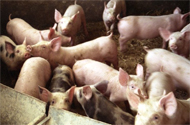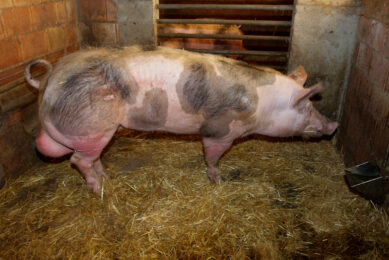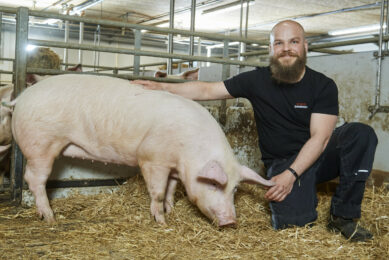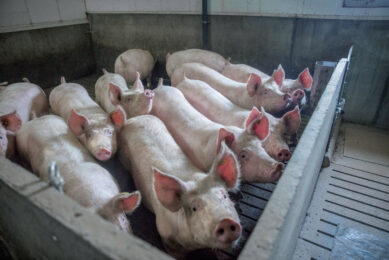EFSA evaluates factors contributing to MRSA in pigs

EFSA has published an evaluation of factors that may contribute to the spread of MRSA (Methicillin-resistant Staphylococcus aureus) in pig holdings in the European Union, following on from the publication of the first EU-wide survey on the occurrence of this bacterium in pigs.
Most MRSA infections are transmitted through direct or indirect human-to-human contact. People can also be exposed to MRSA through contact with infected animals; this is in particular the case for farmers, veterinarians and their families. There is currently no evidence that MRSA can be transmitted to humans through the consumption or handling of contaminated food.
©
EFSA’s survey shows that bigger pig holdings are more likely to be contaminated with MRSA. This was found to be the case for both breeding and production holdings. As an example, the study says that a breeding holding with more than 400 breeding pigs is twice more likely to be contaminated with MRSA compared to one with less than 100 breeding pigs.
©
In addition, EFSA’s analysis highlights that animal movement may play a role in the contamination of breeding pigs’ holdings with MRSA: both through the trade of breeding pigs between Member States and the movements of pigs between breeding and production holdings within the same Member State. The data also show a positive correlation between the number of cases found in breeding holdings and those found in production holdings. This finding suggests that MRSA is transmitted through the movement of animals between the two types of holdings.
EFSA recommends that more information is gathered at national level on those factors that put pig holdings at risk of infection with MRSA and on the measures that can prevent its spread.
©
©
SOURCE: European Food Safety Authority (EFSA)
©
©











